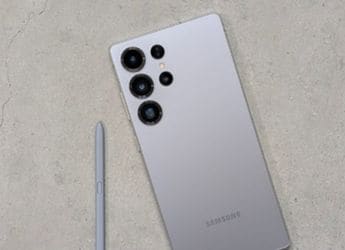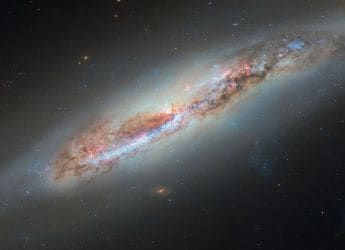- Home
- Science
- Science News
- Milky Way and Andromedia Fated Collision Might Not Happen, Reveals New Study
Milky Way and Andromedia Fated Collision Might Not Happen, Reveals New Study
A new study suggests the Milky Way-Andromeda galaxy collision is less certain, with a 50 percent chance of no merger in the next 10 billion years.

Photo Credit: Unsplash/ NASA Hubble Space Telescope
Astronomers have long anticipated a cosmic clash between the Milky Way and the Andromeda galaxy. This event, projected to occur within the next 5 billion years, has been seen as an inevitable galactic merger. However, a recent simulation suggests that the chances of this collision happening within the next 10 billion years might be less certain than previously thought. According to a new study led by Till Sawala from the University of Helsinki, the probability of the Milky Way and Andromeda colliding could be as low as 50%.
The Shift in Predictions
Earlier studies based on Andromeda's motion and the Milky Way's trajectory had confidently predicted a head-on collision. But the latest research, which incorporates data from Gaia and Hubble space telescopes, shows that the gravitational influence of smaller nearby galaxies can significantly alter these predictions. These smaller galaxies could potentially divert the Milky Way-Andromeda encounter, making the collision scenario less likely. As a result, the notion of an impending galactic merger is now considered less definitive.
Simulation Insights
The new simulations included various cosmic factors, such as the influence of the Triangulum Galaxy and the Large Magellanic Cloud. The results revealed that while the merger scenario still holds a 50% chance, it is not a certainty. The presence of these additional galaxies could either increase or decrease the likelihood of a collision, depending on their gravitational effects on the Milky Way-Andromeda system.
Possible Outcomes
If the collision does not occur, the galaxies might pass each other at a safe distance. Even in the event of a collision, the effects on our solar system would likely be minimal. The merger would primarily affect the outer regions of both galaxies, potentially disrupting some star systems but leaving the core regions relatively undisturbed.
Future Research
Upcoming data from the Gaia mission, which aims to provide a detailed map of the Milky Way, could help refine these predictions. With more precise measurements, astronomers may better understand the factors influencing the Milky Way-Andromeda interaction.
In summary, while the potential collision remains a possibility, recent findings suggest that the scenario is less certain than once thought.
Catch the latest from the Consumer Electronics Show on Gadgets 360, at our CES 2026 hub.
Related Stories
- Samsung Galaxy Unpacked 2025
- ChatGPT
- Redmi Note 14 Pro+
- iPhone 16
- Apple Vision Pro
- Oneplus 12
- OnePlus Nord CE 3 Lite 5G
- iPhone 13
- Xiaomi 14 Pro
- Oppo Find N3
- Tecno Spark Go (2023)
- Realme V30
- Best Phones Under 25000
- Samsung Galaxy S24 Series
- Cryptocurrency
- iQoo 12
- Samsung Galaxy S24 Ultra
- Giottus
- Samsung Galaxy Z Flip 5
- Apple 'Scary Fast'
- Housefull 5
- GoPro Hero 12 Black Review
- Invincible Season 2
- JioGlass
- HD Ready TV
- Laptop Under 50000
- Smartwatch Under 10000
- Latest Mobile Phones
- Compare Phones
- OPPO Reno 15 Pro Max
- Honor Win RT
- Honor Win
- Xiaomi 17 Ultra Leica Edition
- Xiaomi 17 Ultra
- Huawei Nova 15
- Huawei Nova 15 Pro
- Huawei Nova 15 Ultra
- Asus ProArt P16
- MacBook Pro 14-inch (M5, 2025)
- OPPO Pad Air 5
- Huawei MatePad 11.5 (2026)
- Xiaomi Watch 5
- Huawei Watch 10th Anniversary Edition
- Acerpure Nitro Z Series 100-inch QLED TV
- Samsung 43 Inch LED Ultra HD (4K) Smart TV (UA43UE81AFULXL)
- Asus ROG Ally
- Nintendo Switch Lite
- Haier 1.6 Ton 5 Star Inverter Split AC (HSU19G-MZAID5BN-INV)
- Haier 1.6 Ton 5 Star Inverter Split AC (HSU19G-MZAIM5BN-INV)

















